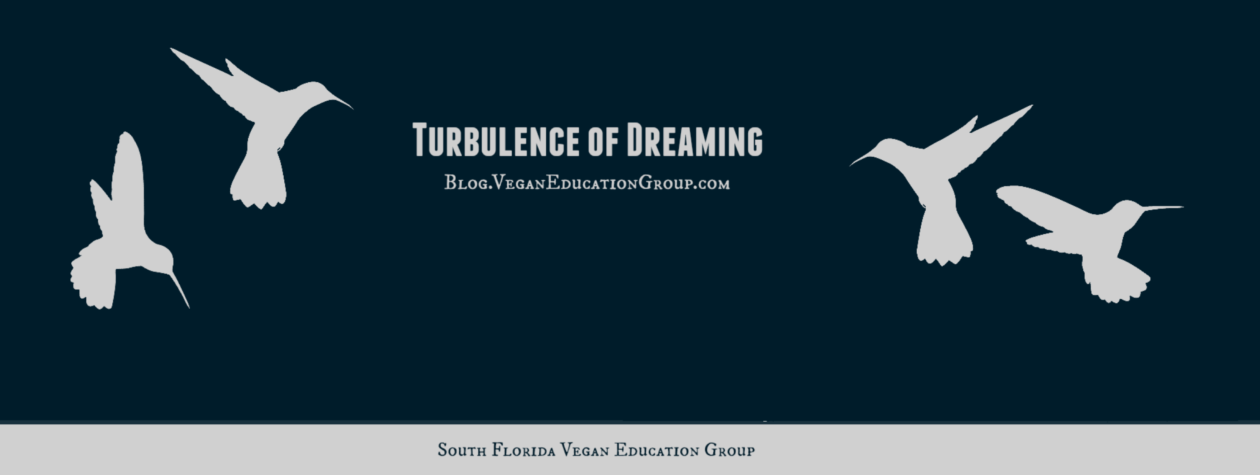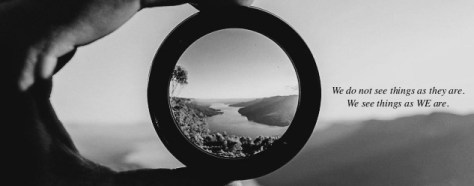2019 has arrived and with it, my fourteenth veganniversary. 🙂
Living vegan was never something I had thought about, planned for or aspired to but, from the moment I understood that animals are individuals and not objects to be used for pleasure and experienced a seismic shift in my attitude toward individuals of other species that instantly led me to veganism, I knew that returning to living a non-vegan life was not an option.

Before going further, at the risk of offending those who self-identify as some version of “vegetarian” — Pescatarian, Flexitarian, Reducetarian, Lacto–Ovo-Bilbo-Frodo-Groucho-Chico-Harpo-Zeppo-Marco-Polo-I-Dunno-No-tarian — it needs to be understood that when one is vegetarian (i.e., still consumes some animal parts or secretions, so is in reality non-vegan), one continues to directly participate in animal exploitation. Arbitrarily excluding certain products of animal exploitation, like veal or other “meats”, from one’s diet does nothing to reduce animal suffering or help change the current paradigm that allows and demands that non-human individuals to be used as disposable, replaceable human resources/property. Vegetarianism may seem on the surface to be helpful, but one need only look a little deeper to realize that, sadly, this is simply not the case. The tacit message of vegetarianism is that “some violence and exploitation is not ok, but some is ok”. When put in a human context (child or spousal abuse, for example), we clearly see the problem and immediately take appropriate action to a) cease our complicity in such morally unjustifiable activities and b) advocate for a full stop to all such activities. If you identify as “vegetarian”, please click the links above, consider this information and commit to living vegan as quickly as possible. See the links at the end of the essay for valuable resources!
Solving a Mystery – When Did I Start Living Vegan?
For years I’ve wondered exactly when it was that I made the ethical decision to live vegan, as opposed to the mostly arbitrary and purely self-centered decision I’d made some months earlier to “become a vegetarian” because it “seemed like a healthy thing to do”.
I mean, I knew it was late in 2004 and certainly know the circumstances (I’ll never forget…) but I couldn’t recall the date and always wished I could. Earlier this year, I was leafing through an old journal (from back in the days when people actually wrote privately in journals rather than blogging, tweeting and Facebooking every thought in their head, a behavior of which I’m certainly guilty) and was excited to find some entries that have essentially solved the mystery for me.
From what I can deduce from the third entry below, it was within a few days of New Year’s Eve 2004 while my cousin Scott and his future wife Laura were visiting Florida on vacation.
Entry 1 is the first indication that I had gone vegetarian, which we can see was not based on any ethical considerations; it was all about me. I had simply eaten so much meat over one particular weekend that I felt I’d “eaten all the meat I’ll ever need to eat” (I actually said something very similar at the time):
[Keith's Journal Entry #1] 8/21/04 - I haven’t checked in here in quite a while. I’ve decided to become a vegetarian and have been eating strictly veg (OK, lacto-ovo veg, as this morning’s omelette would suggest) since March 19th (2004), immediately following the Grilled Meat-Fest at Rudy’s [my now ex-father-in-law]. Don’t worry Rudy - it’s not you, it’s me.
Note my use of the term “veg” (above) which is pretty meaningless as it lacks any real definition. That morning, “veg” included eggs (and very likely cheese) which are not, to my knowledge, “veg”etables.
Entry 2, paragraph 1 shows a glimmer of awareness – albeit wrapped in self-righteousness – that laziness and selfishness are two qualities inherent in (most? all?) humans that can make it challenging for one to take a stand against any societal norm, even when that norm requires the egregious and morally indefensible oppression, exploitation and execution of trillions of innocent non-human individuals every year for no better reason than “they taste good”.
[Keith's Journal Entry #2] 12/8/04 - [in an Asian-fusion restaurant] - The college-age kid seated to my right commented to his dinner date that, “I think I could be vegetarian”. My first thought was to tell him he’s right and just how easily he could make that transition [but] simply put, vegetarianism is NOT the easier, softer way. Culturally, in this country, meat is easier. You don’t have to look deep into a menu to find chicken and burgers and steak. But a vegetarian dish that’s more than just a side of something? Often, this requires effort, and Americans don’t want to put in effort. After all, this is the society that invented fast food and the drive-thru. I love when non-vegetarians (y’know - flesh-eaters) find out I’m vegetarian! The #1 question - right out of the box, within seconds - is “How do you get your protein?” I have to remember to write up some index cards to carry around explaining how it’s done and debunking the protein myth. I could just go with, “Well, I still eat human flesh. I don’t think that counts as meat... Human is a vegetable, right”?
Paragraph 2 (above) shows – once again wrapped in self-righteousness – the spark of my desire to educate others (or just be a pain in their ass). Unformed and without direction, it was there nonetheless.
Entry 3 (below) shows me what I wanted to see – a fundamental, life-altering shift had occurred. I was leaving my non-vegan life behind and moving forward with a commitment to no longer participate in animal exploitation.
[Keith's Journal Entry #3] 1/7/05 - I’m at Sublime [vegan restaurant in Ft. Lauderdale, FL], waiting for a table. I was here New Year’s Eve with Cousin Scott and his girlfriend Laura. They’re both vegan and just wonderful, spiritual people. They didn’t give me the vegan hard-sell, but I’ve decided to go that direction. I’ve already bought two belts made from man-made-materials to replace my leather ones. I’ve gone online in search of non-leather shoes, sneakers and wallets as well. I’ll need to get past my sentimental attachments to my leather stuff because I really don’t like the idea that someone died and, prior to that, lived miserably to produce them. I watched Peaceable Kingdom with Scott and Laura and saw the unbelievably wretched conditions food animals “live” in. I came away feeling... haunted. It was like watching footage of Nazi concentration camps. There should be an animal holocaust museum. After seeing how dairy cows are mistreated, I’ve realized they are nothing more than slaves. I don’t want to be a part of the slave ‘n slaughter culture anymore. Scott and Laura simply refer to all animal products as “death”. Couldn’t be more accurate. My death-free entree has arrived - seitan with mashed potatoes and veggies. It’s one of the best things I’ve EVER tasted.
I find it notable that my earlier entry stating I’d “decided to become a vegetarian” went no further or deeper, except to show just how non-committal I really was about the whole thing. I was even jokey about it. Going “veg” was no more significant a life choice than, say, making the decision to wear khakis more often or take up cross-country skiing or mahjongg (or cross-country mahjongg while wearing khakis… whatever). It was just another thing to do, a whim subject to change at a moment’s notice. I recall that, along with that decision, I also very loudly “reserved my right” to eat fish and eggs “if I need to”. I’ve since learned that a) no human “needs” to eat fish or eggs for any reason and b) when the “right” I’m reserving denies another sentient being his or her right to live freely, it’s not a right I’m reserving – it’s a morally unjustifiable wrong.
By contrast, in discussing my decision to start living vegan in Entry #3, I included some of my feelings and reasoning for making that decision (including identifying animal use as a form of slavery, a fundamental injustice I oppose, which was the catalyst for my decision to live vegan), action I’d taken and plans for further action in the same direction. Put another way, this was not some spur of the moment whim. I was serious.

When it comes to veganism and animal rights, I’m still serious and that’s how I’ll remain. It’s no laughing matter that trillions of land and sea animals – non-human individuals who think, feel and have the same basic right as any human animal to live life freely and autonomously – are killed every year for human pleasure, entertainment and convenience. It’s the shame of our species that the majority of us continue to support, condone, promote and actively engage in such horrific and barbaric practices. Living vegan is the very least we can do for the animals and, secondarily, for ourselves and this small planet we all share.
Veganism should be our global society’s moral baseline for our treatment of individuals of other species and fortunately, for many of us and more every day, it already is. Is it yours? If not, why not?

[I encourage all readers to click the blue links embedded in this essay and explore the information on those sites. Also, please read our Disclaimer regarding external sites, organizations, individuals, etc.]







